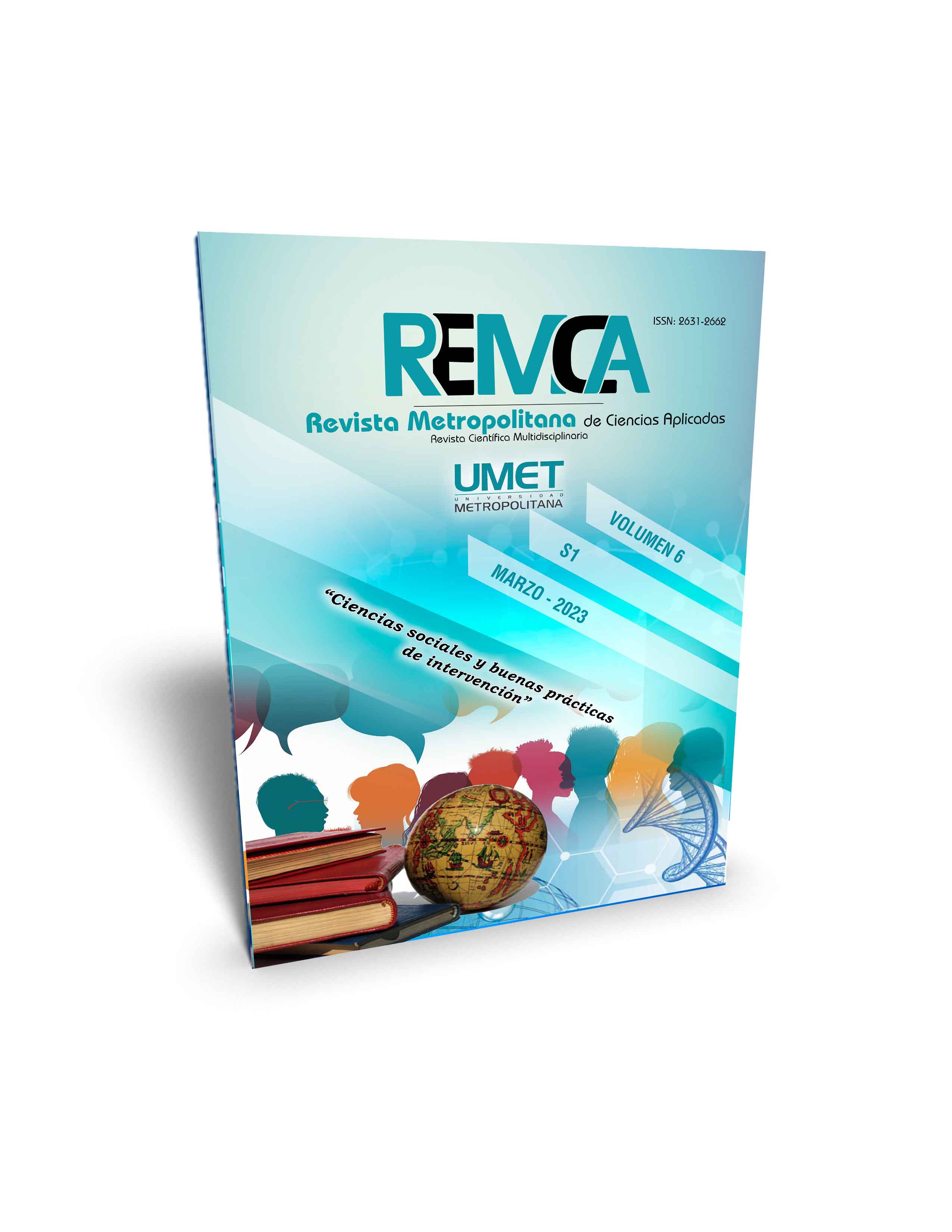Importance of teaching professionalisation in basic education in Mexico
DOI:
https://doi.org/10.62452/b58svq03Keywords:
Curricular design, teacher professionalization, context, revaluation, teaching-learningAbstract
The objective of this essay is to analyze that one of the problems that most concerns the educational sector is the lack of teacher professionalization in education, emphasizing that this need took greater force at the beginning of the confinement by SARS-CoV-2 since digital skills, the planning and distance classes were a considerable challenge at the different levels of education, for this reason it is necessary to analyze the 2022 curricular design and the elements that compose it together with the National Development Plan 2019-2024 proposed by the NEM (New Mexican School ) proposing lines of action to eradicate this need. In accordance with the objectives of providing comprehensive education to students, the teaching staff is encouraged to train and revalue their professionalization to further facilitate the teaching-learning process within the educational context, taking into account the needs and conditions of the students, the context where is developed, it is considered that it is extremely important to analyze this factor since teacher professionalization is the path to educational excellence.
Downloads
References
Aguilar, J. (2018). Planeación educativa y diseño curricular. Asociación Nacional de Docentes Universitarios.
Cuetos Revuelta, M. J., Grijalbo Fernández, L., Argüeso Vaca, E., Escamilla Gómez, V., & Ballesteros Gómez, R. (2020). Potencialidades de las TIC y su papel fomentando la creatividad: percepciones del profesorado. RIED-Revista Iberoamericana De Educación a Distancia, 23(2), 287–306.
Enriquez, L. G. (2014). Concepciones y factores influyentes en el desarrollo profesional docente en España, Chile y Colombia en los últimos diez años. (Tesis de Maestría). Pontificia Universidad Católica del Perú.
Linares, E., García, A., & Martínez, L. (2021). La profesionalización docente: nuevos retos para los docentes de educación superior en la UPIBI DEL IPN. Revista Iberoamericana para la Investigación y el Desarrollo Educativo, 11(22).
México. Congreso Constituyente. (2022). Constitución Política de los Estados Unidos Mexicanos. https://www.diputados.gob.mx/LeyesBiblio/pdf/CPEUM.pdf
México. Secretaría de Educación Pública (2019). La Nueva Escuela Mexicana: Principios y Orientaciones Pedagógicas. SEP. http://dfa.edomex.gob.mx/sites/dfa.edomex.gob.mx/files/files/NEM%20principios%20y%20orientacio%C3%ADn%20pedago%C3%ADgica.pdf
México. Secretaría de Educación Pública (2020). Programa Sectorial derivado del Plan Nacional de Desarrollo 2019-2024. SEP. https://drive.google.com/drive/folders/18WSEv8dC8iOvre9PfCzv4rzzetm7ruob
México. Secretaría de Educación Pública. (2011). Educación Básica. SEP. https://www.gob.mx/cms/uploads/attachment/file/20177/Plan_de_Estudios_2011_f.pdf
México. Secretaría de Educación Pública. (2022). Plan de estudios de la educación básica. (2022-2023). SEP. https://drive.google.com/file/d/1EpLpsWWUfq7eDXNfej66knMREJd2nkvX/view
Organización para la Cooperación y el Desarrollo Económico. (2010b). Acuerdo de cooperación México-OCDE para mejorar la calidad de la educación de las escuelas mexicanas. OECD. https://www.oecd.org/education/school/46216786.pdf
Organización para la Cooperación y el Desarrollo Económico. (2010a). Mejorar las escuelas. Estrategias para la acción en México. OCDE. https://www.oecd.org/education/school/46216786.pdf
Pérez, A. (2014). La profesionalización docente en el marco de la reforma educativa en México: sus implicaciones laborales El Cotidiano, 184
Downloads
Published
Issue
Section
License
Copyright (c) 2023 Ana Lilia Mera-Ángeles (Autor/a)

This work is licensed under a Creative Commons Attribution-NonCommercial-ShareAlike 4.0 International License.
Authors who publish in Revista Metropolitana de Ciencias Aplicadas (REMCA), agree to the following terms:
1. Copyright
Authors retain unrestricted copyright to their work. Authors grant the journal the right of first publication. To this end, they assign the journal non-exclusive exploitation rights (reproduction, distribution, public communication, and transformation). Authors may enter into additional agreements for the non-exclusive distribution of the version of the work published in the journal, provided that acknowledgment of its initial publication in this journal is given.
© The authors.
2. License
The articles are published in the journal under the Creative Commons Attribution-NonCommercial-ShareAlike 4.0 International License (CC BY-NC-SA 4.0). The terms can be found at: https://creativecommons.org/licenses/by-nc-sa/4.0/deed.en
This license allows:
- Sharing: Copying and redistributing the material in any medium or format.
- Adapting: Remixing, transforming, and building upon the material.
Under the following terms:
- Attribution: You must give appropriate credit, provide a link to the license, and indicate if any changes were made. You may do this in any reasonable manner, but not in any way that suggests the licensor endorses or sponsors your use.
- NonCommercial: You may not use the material for commercial purposes.
- ShareAlike: If you remix, transform, or build upon the material, you must distribute your creation under the same license as the original work.
There are no additional restrictions. You may not apply legal terms or technological measures that legally restrict others from doing anything the license permits.




